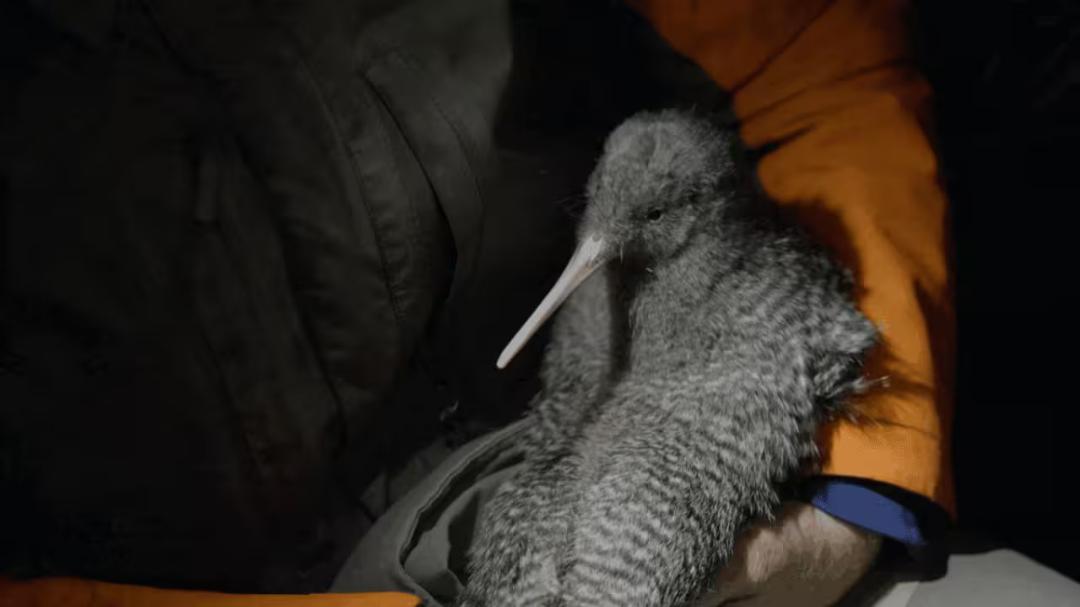
Little Spotted Kiwi found on mainland New Zealand after 46 years
In a remarkable discovery, a Little Spotted Kiwi has been found on mainland New Zealand after an absence of 46 years. The sighting of this rare bird species has sent shockwaves through the conservation community, as experts believed that the Little Spotted Kiwi only lived on predator-free islands.
The discovery was made by Luke Hill, a hunter, in the Adams Wilderness Area, deep in New Zealand’s Southern Alps. Hill stumbled upon the bird while on a hunting trip, and initially thought it was a more common kiwi species. However, after closer inspection, he realized that it was a Little Spotted Kiwi, a species that was thought to be extinct on the mainland.
The news of the sighting was met with great excitement and surprise, as the Little Spotted Kiwi was last spotted on the mainland in 1978. Since then, conservation efforts had focused on controlling predators on islands where the bird was known to thrive. The discovery of the bird on the mainland has raised new questions about the bird’s ability to adapt to different environments and the potential for its population to grow.
According to Luke Hill, the hunter who made the discovery, the bird was in good condition and seemed to be thriving in its natural habitat. “I was just walking through the bush, looking for pigs, and I saw this little bird scurrying around. At first, I thought it was just a common kiwi, but when I got a closer look, I realized it was a Little Spotted Kiwi,” Hill said in an interview.
The discovery of the Little Spotted Kiwi has also raised concerns about the impact of predators on the bird’s population. Predators such as stoats, cats, and rats are known to prey on kiwi eggs and chicks, making it difficult for the species to survive. The fact that the bird was able to thrive on the mainland suggests that it may have developed strategies to avoid predators or has a natural ability to adapt to different environments.
In the aftermath of the discovery, the Department of Conservation (DoC) was quick to respond, sending a team to the Adams Wilderness Area to locate the bird. The team was successful in finding the female bird, and in addition, they also found a male Kiwi during their search.
The discovery of the Little Spotted Kiwi has significant implications for conservation efforts in New Zealand. The bird’s ability to thrive on the mainland suggests that conservation efforts should focus not only on controlling predators on islands but also on protecting habitats on the mainland. The discovery also highlights the importance of preserving biodiversity and the need to protect rare and endangered species.
According to Dr. Andrew Easteal, a conservation biologist at the University of Auckland, the discovery of the Little Spotted Kiwi is a significant breakthrough in our understanding of the bird’s behavior and habitat. “This discovery shows that the Little Spotted Kiwi is more resilient than we thought, and it highlights the importance of preserving habitats on the mainland,” Dr. Easteal said in an interview.
The discovery of the Little Spotted Kiwi also serves as a reminder of the importance of community involvement in conservation efforts. Luke Hill’s discovery was made possible through his knowledge of the wilderness area and his ability to identify the bird. The success of the DoC’s search effort was also made possible through the public’s willingness to participate in conservation efforts.
In conclusion, the discovery of the Little Spotted Kiwi on mainland New Zealand after 46 years is a significant breakthrough in conservation efforts. The bird’s ability to thrive on the mainland highlights the importance of preserving biodiversity and the need to protect rare and endangered species. The discovery also serves as a reminder of the importance of community involvement in conservation efforts and the need to protect habitats on the mainland.






